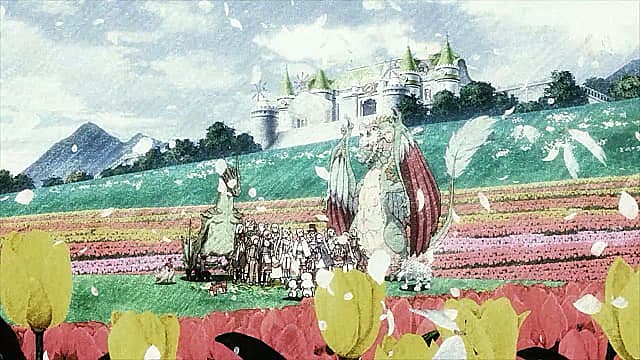

The Rune Factory series is a long-running spinoff of Harvest Moon, opting for a more traditional RPG setup alongside the usual farming and romancing the series is known for. Rune Factory 4 released seven years ago on the Nintendo 3DS to some acclaim, and now it's back on the Nintendo Switch ahead of the next installment's release sometime later this year.
How does RF4 stack up after all these years, and is it really that "special" this time around? Absolutely.
Rune Factory 4 Special Review: The Prize Crop
Deceptively, Rune Factory 4 Special starts out predictably and trope-y. After selecting your avatar, you embark on a mission, only to be stormed by bandits, chucked off your airship, and mistaken for royalty in the town of Selphia. What’s more, you’ve even lost your memory — gasp and surprise!
It borrows a lot not just from a pool of RPG storytelling in general, but even from other Rune Factory games.
However, things start to quickly change after your third dungeon. Though I won’t spoil it for you here, I can say it develops into something reminiscent of an SNES-era RPG classic, mixing standard fare like saving the world with more compelling, emotional motivations and story arcs. It’s still a bit easy to guess some of the major points, but I think that’s actually by design because it has an interesting effect on how you view events while they unfold.
In between, Rune Factory 4’s story still has plenty of unexpected twists to keep things interesting, even if you think you know what’s coming. It’s easily the best Rune Factory story and a strong RPG tale in its own right, thanks in large part to the fantastic cast of characters and how certain ones are integrated into the narrative.
The cast is also why you likely won’t find it difficult to make it through the very slow first two weeks or so of Spring, when quests are limited and story isn't really there yet. Selphia is full of fun and colorful characters. Some are easy to categorize as just archetypes, yet they still manage to charm and engage with ease. And it helps that they’re mixed alongside some genuinely stand-out personalities as well.
There’s the usual tough girl with a soft spot for sweets and the hotshot with a dark past. But there’s also the compassionate and hilariously flamboyant chef Porcoline who eats most of the dishes his restaurant patrons order, the mysterious girl Amber who likes to eat flowers, the bath-house owner’s daughter Xiao Pai who lives in a special world of her own — and that’s just the beginning.
Dig beneath the seemingly predictable surface, and you’ll find an endearing cast of characters to bond with. No, they never get too deep, but like the Atelier series, deep characterization isn’t really meant to be at the forefront here.
XSeed’s characteristically witty and snappy localization shines through once again as well, bringing a natural vibrancy to the script that breathes life into Selphia. It alternates between tongue-in-cheek humor, slapstick, and laugh-out-loud quirkiness, yet it seamlessly switches to sincere and touching when appropriate.
Granted, the game itself sometimes undermines the emotional elements by nature of how its systems work — letting certain points languish while you farm and level up — but the moments definitely work when they need to.
One system Rune Factory implements that does work especially well, though, is its dialogue, especially how it changes. Most farm-sim games have a very small dialogue pool for each character that changes on festival days and then each season. In Rune Factory 4, however, you’ll get a much wider range of dialogue from most characters depending on where the story is, what time of year it is, whether it’s someone’s birthday, and things like that.
It still repeats at times, but it’s good encouragement to chat with folks when you see them (which is nice, because it raises their affection) and ultimately helps Selphia feel even more alive.
Speaking of systems, Rune Factory 4 has a lot of them. There are systems for farming. There are systems for every kind of crafting and cooking. There are systems for bathing (??). And there are systems for basically everything else.
Fortunately, they all seamlessly work together to create one of the more compelling gameplay loops in the genre, despite a few bumps here and there.
You probably know already, but Rune Factory 4 — and Rune Factory in general — isn’t your usual farming game. Your farm is the backbone of almost everything you do, but on top of that, you’ve got multiple crafting and equipment systems you can work with, dungeons to explore, tons of items to gather, and monsters to fight and tame. That's all on top of a quest system that helps you earn new items and develop Selphia’s shops.
Each of these blends smoothly into the other, regardless of what you’re doing at the time, combining traditional farm-sim elements with much-appreciated improvements.
You’ll gather crops and either ship them, cook them, or give them away per usual. But you’ll get far more from each seed packet than you get from seed packets in Harvest Moon or Stardew Valley, which means you also get more money for your pains.
Before starting the growth cycle again, though, you’ll check out Eliza the talking quest box (complete with her own backstory) to see what quests you’ve got available that day. Maybe someone’s requesting you ship a certain crop or grow X number of flowers. Apart from giving these daily activities more meaning, these quests also reward you with a number of important things.
There are items, of course, but you unlock wider varieties of seeds and implements at stores in town, too (things otherwise very limited at first), which lets you earn more money and take on new quests. Completing quests and shipping items, especially higher quality items, also earns you Prince/Princess points.
These are arguably more important than Gold because you’ll use them to unlock a range of vital features, from new festivals to new shops, expansions to your farm, and licenses.
Licenses let you do things like create gear and weapons, cook, and synthesize medicine. After getting licensed, you’ll still need to buy the necessary furniture for each activity, so it’s a good thing money isn’t super hard to come by in Rune Factory 4.
Choosing what to spend your PP on adds some quality customization to the experience and makes it feel like your choices matter. From there, your options open up even more. You’ll need to keep cooking, crafting, and farming to raise your respective skill levels, but whether you choose to use all your new stuff as gifts, as money to put back into the machine, or as exploration items to help you survive in the dungeons (highly recommended) is completely up to you.
Whatever you choose to do, Rune Factory 4 always makes you feel like you’re making progress somehow, even if it’s just expanding the seed varieties on offer or taming a Buffamoo to get milk for your cooking enterprises.
Granted, you won’t really know what some of these skills actually do. The Bathing and Sleeping skills are pretty vague, as is “Water.” Does it raise your ability to water crops, or is it about your water-based magic abilities? Unfortunately, Rune Factory 4 is content to let you wonder, because the open-ended nature extends to a lack of tutorials beyond the most basic ones.
There’s no kind of indication when a character event is available either, which can affect how your relationships progress and even whether you move the plot forward. If you hate tutorials and so-called hand-holding, hooray. If you like knowing everything about what you’re doing, eh… not so great.
Fortunately, it’s also completely up to you how you progress. As far as I can tell, there’s no kind of time limit for any activity you undertake, even when it comes to exploring the dungeons. It takes a lot of pressure off dungeon crawling and planning your daily routine, which is very good considering it takes a number of days to clear each dungeon after the third one.
There’s a substantial difficulty spike after that point where you’re expected to have a decent grasp of equipment making (assuming you weren’t lucky and found good stuff lying about) and slightly more advanced cooking skills under your belt.
That’s all down to Rune Points and, of course, your health. Special actions, including magic skills and anything beyond basic attacks, take up Rune Points, which are basically your stamina. It’s nothing huge at first, but when your survival starts depending on smart use of skills and spells, you’ll need some of those RP restoratives pretty fast, to say nothing of medicines that remove crippling status effects.
Combat itself is another throwback to the SNES era. It’s a lot like Secret of Mana and the Game Boy Advance remake Sword of Mana (not SNES, I know). You’ll get access to a number of weapon types that each handle in vastly different ways, and using them regularly enhances your skill and unlocks new attacks.
Like Secret of Mana, the hitboxes are a bit wonky at times. Aside from that, combat in Rune Factory 4 is quite satisfying and challenging, much better than the button-mashing it first seems like it’ll be. Should it ever be too challenging or not hard enough, you can head to the basement near your room and adjust the difficulty at any point.
Continuing with the retro theme, Rune Factory 4 looks and sounds like an old-fashioned RPG as well. The graphics have been upgraded from the grainy 3DS originals and look slick and smooth on the Switch — handheld and docked mode — with just a few minor exceptions. It’s not a graphical powerhouse, and it’s not trying to be.
As for the other Switch enhancements that make this Special edition special, well… I can’t comment very much on those. Only one of the “Another Episode” segments is available until the game launches, and while I hope Clorica will remain awake long enough for my avatar to confess his feelings for her, I’ve yet to get married in the game.
If you’ve already put hundreds of hours into RF4, these additions will probably be worth picking it up again, especially with the visual enhancements. Anyone else who hasn’t played it yet, it’s not one to sleep on.
Rune Factory 4 Special — The Bottom Line
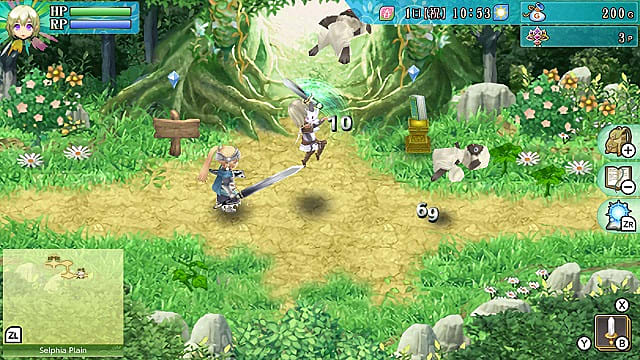
Pros
- Charming and fun cast
- Interesting story that plays with RPG tropes
- Smooth integration of gameplay elements
- Enhanced graphics are a treat
- Customizable experience, from how you farm to challenge difficulty
- So much to do!
Cons
- Some systems need more initial explanation
- No event markers
- Very slow first two weeks
Nintendo Switch isn't starving for RPGs or even farm-sim games — quite the opposite. While Rune Factory 4 might not reach the epic heights of Xenoblade Chronicles 2 or Dragon Quest 11 S, and as a simulator, it might get overlooked for Animal Crossing: New Horizons.
However, Rune Factory 4 manages to be something else entirely and manages it very well. With its endearing cast, staggering amount of content, interlocking systems, and ability to let you tailor the experience how you want it, Rune Factory 4 Special is certainly an RPG worthy of your consideration.
[Note: A copy of Rune Factory 4: Special was provided by XSEED for the purpose of this review.]
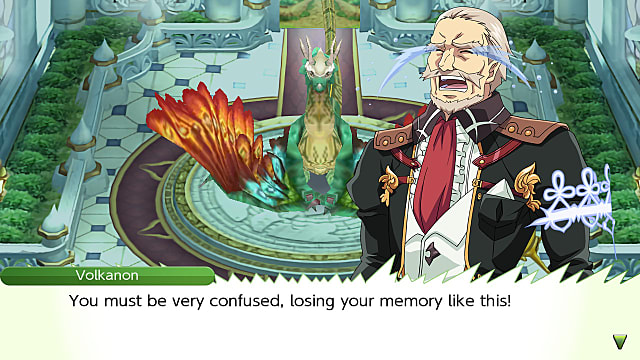
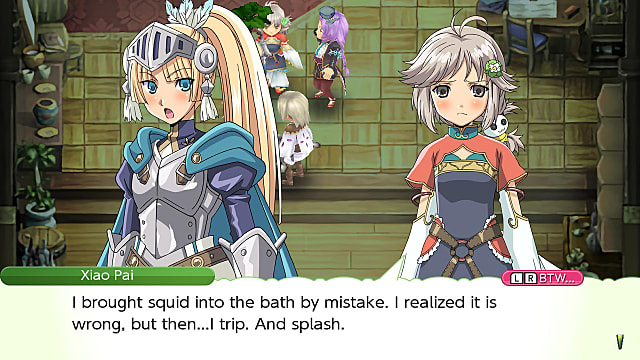
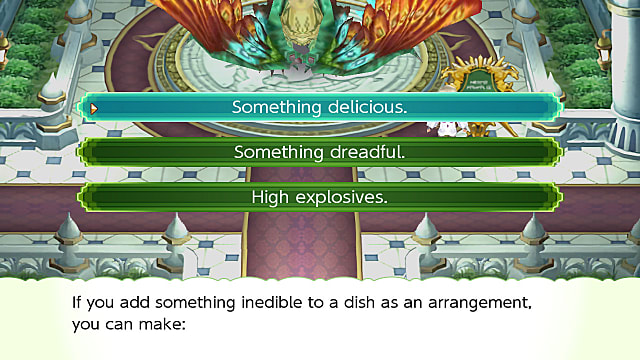
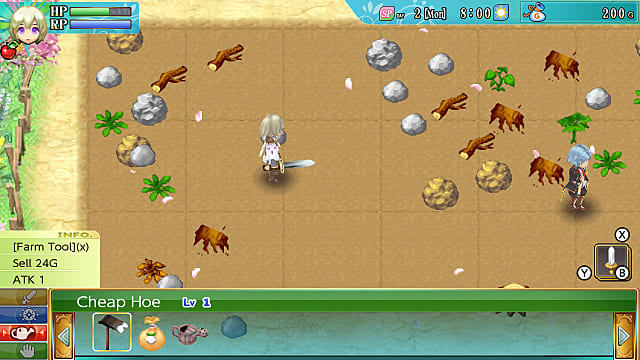
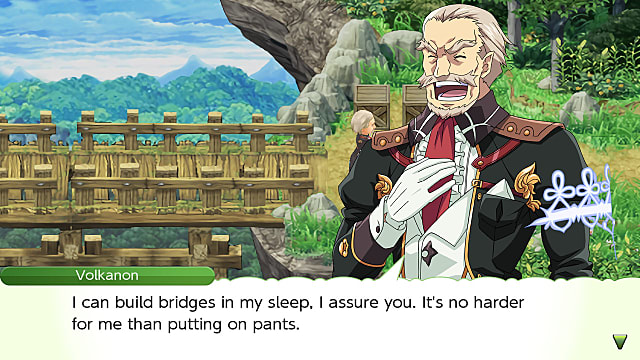
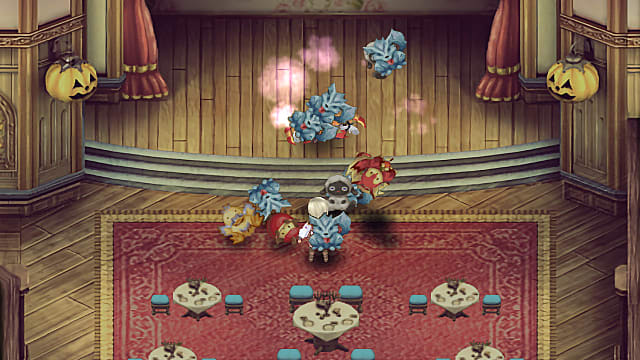
0 comments:
Post a Comment